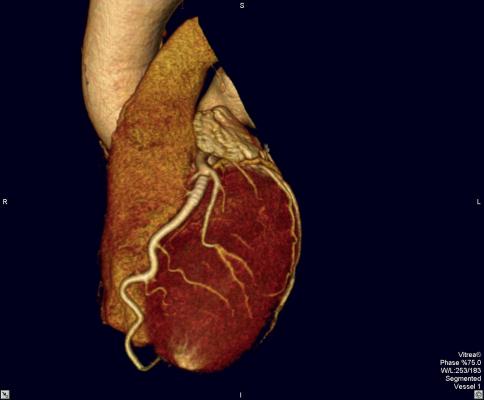
September 4, 2015 — Gene transfer therapy to correct an enzyme abnormality involved in myocardial contraction and relaxation did not improve outcomes in heart failure patients with reduced ejection fraction, results of the CUPID 2 study show.
The findings, presented at the European Society of Cardiology (ESC) Congress 2015, represent the largest gene transfer study to date in this population.
“Despite promising results from earlier studies, the therapy did not reduce either recurrent heart failure events or terminal events in the overall study population or in pre-specified subgroups,” said principal investigator Barry Greenberg, M.D., from the University of California San Diego (UCSD) Sulpizio Cardiovascular Center.
But the results provide some important information for future research in this area, he said.
“They demonstrate that clinical trials testing gene transfer can be carried out effectively in heart failure patients, and that using intracoronary delivery of an adeno-associated virus (AAV) vector at this dose is safe,” he said.
CUPID 2 was based on the observation that deficiency of the enzyme sarcoplasmic reticulum CA2+ ATPase (SERCA2a), is linked to progression of heart failure and correction of this abnormality by gene transfer may improve cardiac function.
A pilot study by the same group showed that a single intracoronary infusion of the SERCA2a gene using an AAV vector had favorable effects in patients with advanced heart failure (Circulation 2011;124:304–13).
CUPID 2 (Calcium Up-Regulation by Percutaneous Administration of Gene Therapy in Cardiac Disease Phase 2b) investigated this finding further, enrolling 250 heart failure patients with reduced ejection fraction from 67 centers in the United States, Europe and Israel.
Patients were randomized to receive one dose of either gene therapy (n=121) or placebo (n=122) and then followed for at least one year.
The primary efficacy endpoint was time to recurrent events, defined as hospitalizations or ambulatory treatment for worsening heart failure. The secondary efficacy endpoint was time to first terminal event, defined as all-cause death, heart transplant or implantation of a mechanical circulatory support device (MCSD).
After a median follow-up period of 17.5 months, patients in the gene therapy group did not show improvements in either the primary or secondary endpoints compared to the placebo group.
Specifically, there were 104 recurrent events and 36 terminal events in the gene therapy arm compared to 128 and 29, respectively, in the placebo arm (hazard ratio [HR] 0•93, P=0•81 and HR 1•27, p=0•40 respectively). No safety issues were noted.
“Why infusion of SERCA2a did not improve outcomes in CUPID 2 is not certain and review of the data is underway to try to understand this,” said Greenberg.
“Although preliminary results in experimental models and in pilot studies of heart failure patients showed favorable results, it is possible that SERCA2a may not be an appropriate target for treating heart failure in human patients, and that the positive pilot study results could just be a chance finding.”
“Although deficiencies in SERCA2a activity and their correction by gene transfer have been demonstrated in animals, it is possible that these findings are not applicable in human heart failure and that raising the level of SERCA2a activity cannot alter the trajectory of the disease,” he suggested.
“Although CUPID 2 did not meet its end-points, it was an important study and the results should help inform future efforts using gene therapy to treat heart failure.”
The study was funded by Celladon Corp. Greenberg has been a consultant for and received honoraria from Celladon.
For more information: www.escardio.org


 February 03, 2026
February 03, 2026 









